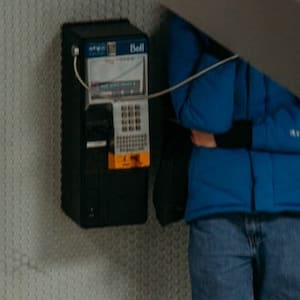save by the bell: Idiom Meaning and Origin
What does ‘save by the bell’ mean?
The idiom "save by the bell" means to be rescued or spared from a difficult or dangerous situation at the last possible moment.

Idiom Explorer
The idiom "save the furniture" means to prevent a potentially disastrous situation from becoming worse or to salvage something valuable from a negative situation.
When someone "saves the day," they act heroically or ingeniously to resolve a difficult situation or prevent a disaster.
The idiom "save someone's skin" means to rescue or protect someone from danger or harm.
The idiom "save someone's face" means to protect someone's reputation or dignity by preventing them from feeling embarrassment or humiliation.
The idiom "save one's breath" means to not waste one's time and effort in trying to convince or persuade someone who is unlikely to change their opinion or beliefs.
"Save it" is an idiom that means to stop talking or expressing an opinion, usually because the speaker's point is not wanted or considered relevant by the listener.
The idiom "saved by the bell" means being rescued or helped at the last moment, usually from a difficult or dangerous situation.
An idiom is a phrase that does not have a literal meaning. The idiom "save" means to keep money or resources for future use, or to rescue someone or something from danger or harm.
The idiom "salt away" means to save or keep something, especially money, for future use or for a specific purpose.
Origins Revealed
The idiom "save by the bell" is commonly associated with boxing. It suggests that someone was saved or rescued from a difficult or dangerous situation at the last possible moment. The phrase originated in the late 19th century and has since become a popular expression in everyday language and various forms of media.
One theory about the origin of this idiom relates to boxing matches. In early boxing matches, a bell would ring to signal the end of a round. If a boxer was in trouble or about to be knocked out, the bell would save them from further harm by marking the end of the round and providing a break from the fight. Over time, the association of being saved by the bell extended beyond the boxing ring to other areas of life.
Another possible origin of the idiom is the practice of burying people who were mistakenly thought to be dead. In the past, individuals were sometimes mistakenly pronounced dead and buried alive. To prevent this, a bell would be tied to the hand of the deceased person and connected to a rope or string above the ground. If the person woke up or regained consciousness, they could ring the bell to alert others and be saved from being buried alive. This practice gave rise to the phrase "saved by the bell" in a more literal sense.
Additionally, school bells are another possible origin of the idiom. In some schools, bells are used to mark the beginning and end of classes or to signal breaks. Students might use the phrase to express relief or gratitude for being saved from an unpleasant or difficult situation by the sound of the bell. For example, a student may be saved from a difficult test, a boring lesson, or an uncomfortable social interaction.
The idiom "save by the bell" is widely used in literature, film, television, and everyday conversation. It is often used figuratively to describe situations where someone narrowly avoids a negative outcome or is rescued from danger at the last moment. The phrase has become deeply ingrained in the English language, and its origins remain a subject of speculation and debate.
Idioms like "save by the bell" can evolve in meaning and usage over time. However, its importance lies in its ability to convey a sense of being rescued or saved from a difficult situation. The idiom perfectly captures the relief and gratitude felt when someone is spared from harm or negative consequences at the very last moment. It paints a vivid picture of a desperate situation and the timely intervention that prevents a disastrous outcome.
The idiom can be applied in various scenarios, ranging from literal life-and-death situations to minor inconveniences. It reminds us of the unpredictability of life and how seemingly trivial factors can have a profound impact on our outcomes. It also invites us to contemplate and reflect on the many possible situations where we may find ourselves in need of a timely intervention. The idiom urges us to appreciate the moments of serendipity and the factors that align to save us from the brink of disaster.
Example usage
Examples of how the idiom "save by the bell" can be used in a sentence:
- She was struggling to finish her exam but was saved by the bell when the time was up.
- The basketball team was losing the game, but they managed to score a winning shot, saving themselves by the bell.
- He was about to collide with a car, but he swerved at the last moment, saved by the bell.
More "Origin" idioms



